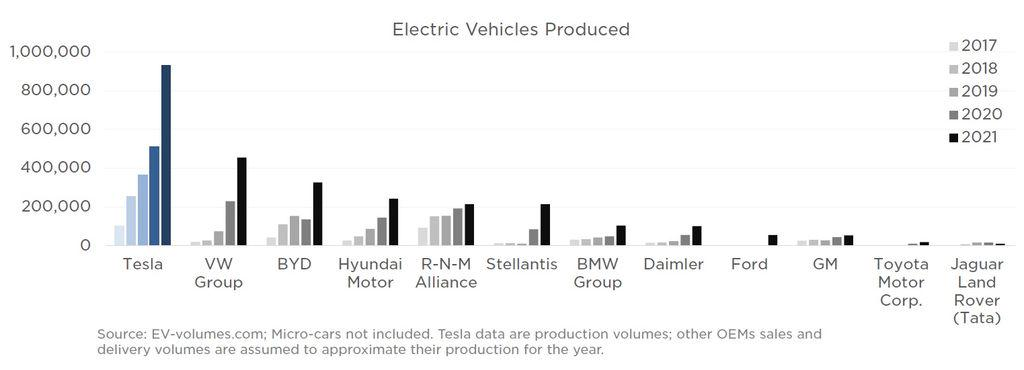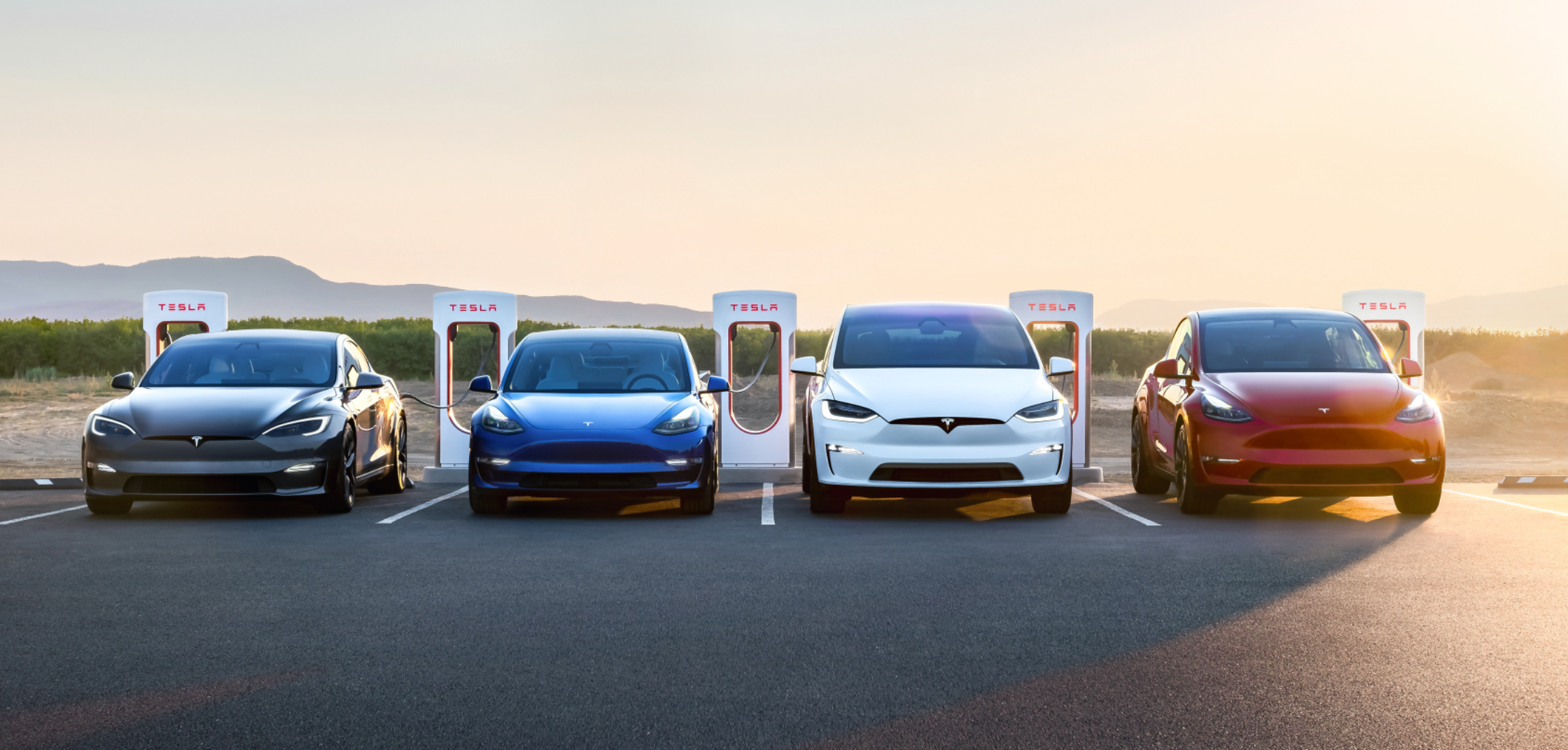2021 in BEVs: How Automakers Stack Up
In 2021, Tesla delivered over 936,222 electric vehicles worldwide, undoubtedly a major achievement. But how did other automakers fare in the electric vehicle race?
In its 2021 Impact Report, Tesla showcased a chart tracking the production and sales of full-electric vehicles by 12 selected automakers from 2017 to 2021. The data was sourced from third-party reports (which may include estimations) and excludes micro-cars (such as the popular Wuling MINI EV).

Clearly, Tesla is the market leader in the BEV space, with the highest sales and impressive growth rates. The second biggest player in the game is Volkswagen Group, retaining its ranking from last year. But there were some interesting changes in the rankings beyond them.
The most noticeable shift was the huge increase in sales for BYD, moving it up to third place (from fifth place in 2020). Sales for Hyundai Motor Group grew, but it remained in fourth place.
Meanwhile, the struggling Renault-Nissan-Mitsubishi Alliance dropped from third place to fifth place, followed closely by sixth place Stellantis. Stellantis is a company formed from a 50-50 merger between the PSA Group and Fiat Chrysler Automobiles (FCA), and moved up one place in the rankings from last year.
2021 was a challenging year for General Motors, which dropped from sixth place in 2020 to being surpassed by Stellantis, BMW Group, Daimler, and Ford. Toyota and Jaguar Land Rover ranked at the bottom.
Of course, the automakers on this chart were selected, with focus on global players, and not all major Chinese automakers were included. Only the top dog, BYD, was selected from China. If domestic players were included, the ranking would likely see little beyond BMW.
The main message Tesla conveyed is that “sales of electric vehicles by all automakers need to accelerate in order to take market share away from combustion engine cars.” The BEV market is still in its early stages, and there is a large incremental market, allowing all manufacturers to expand their production and sales of electric vehicles.
This may be why Tesla encourages other OEMs to produce hundreds of thousands of electric vehicles each year:
In 2021, Tesla delivered almost 1 million electric vehicles globally. We hope that every automaker strives to produce hundreds of thousands of electric vehicles every year, because only when all automakers are pushing for the transition to electric vehicles can the entire industry be moved forward.
With its current leading edge, Tesla certainly has the confidence to say this. With the Berlin and Texas factories starting production in 2022, new records in production and sales for Tesla are virtually guaranteed.
Tesla BEV Sales Comparison Against Other OEMs In Q1 2021
Tesla is dominating the all-electric vehicle market with impressive sales numbers that are increasing every year. In the first quarter of 2021, Tesla sold 184,800 Battery Electric Vehicles (BEVs), which is significantly higher than the other top-selling BEV manufacturers combined.
According to the data gathered by EV Sales, Kia came in second place with 21,186 BEVs sold, followed by Volkswagen with 18,514 BEVs sold. Other major automakers like Ford, Audi, and Porsche saw much lower BEV sales figures compared to Tesla.
Tesla’s success in the BEV market can be attributed to factors such as its advanced technology, high-quality products, and strong brand recognition. As more automakers start to focus on developing electric vehicles, Tesla will likely face more competition, but the company seems poised to maintain its lead in the market for the foreseeable future.
Source: InSideEVs
This article is a translation by ChatGPT of a Chinese report from 42HOW. If you have any questions about it, please email bd@42how.com.
